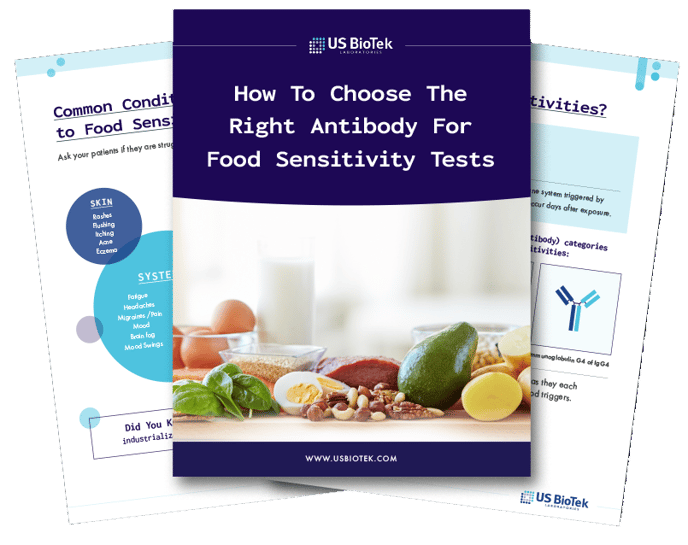Different food sensitivity antibodies provide different information. Here is an outline to help you understand which antibody you should order.
When testing for food sensitivities, US BioTek uses three main immunoglobins, IgG (1,2,3), IgA, and IgG4. We test these antibodies separately to establish a clear picture of what food triggers may be the root cause of patients’ symptoms.
Immunoglobulin G1-3 or IgG
IgG is an antibody that can activate the pro-inflammatory complement system (complement cascade) associated with chronic inflammatory conditions. High levels of IgG (class II or higher) overload receptors and drive the inflammatory reaction while low levels of IgG (class 0/I) indicate tolerance.
IgG testing is the most commonly performed food sensitivity testing and foods that are only high in IgG can often be safely re-introduced after a period of abstinence.
Immunoglobulin G4 or IgG4
IgG4 is an antibody which in most people does not activate the complement system, but instead is a “blocking antibody” for IgE. The presence of IgG4 is protective, not inflammatory, as IgG4/IgE binding tends to decrease IgE hypersensitivity (true allergy). If IgG4 is high, testing for IgE reactivity is advised and it may be best to remove the food from the diet permanently.
Independent increases in IgG4 only can be associated with certain autoimmune conditions such as eosinophilic esophagitis.
Immunoglobulin A or IgA
IgA is an antibody that can activate the pro-inflammatory complement system. Unlike Secretory IgA (sIgA) in stool, which is two IgA molecules bound together and secreted into the gut, serum IgA levels are associated with allergies and asthma. A Serum IgA reaction to food triggers can indicate foods that are irritating the lining of the gut.

